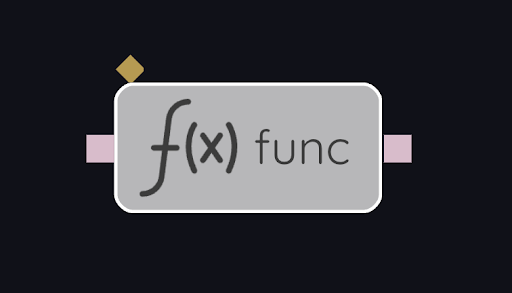func

| Name | Type | Description | Optional |
|---|---|---|---|
f |
shared <?1> ← <?0> |
a shared function |
no |
| Name | Type | Description | Optional |
|---|---|---|---|
input |
?0 |
a value of type ?0, the input to f |
no |
| Name | Type | Description | Optional |
|---|---|---|---|
output |
?1 |
the result of f applied to the input |
no |
func reads its input, and outputs the value f( x ), where x is the input value.
It is rarely necessary or advisable to use this node. The requirement that the entire function syntax including its parameter specification must be provided makes it somewhat cumbersome to use. An expr node is almost always preferable. It has a nearly identical expressive power to func, but a more convenient interface. The notable exception is when calling a function by its name. In this case the f input can be simply the name of the function, and the result is simpler than if an expr node were used.